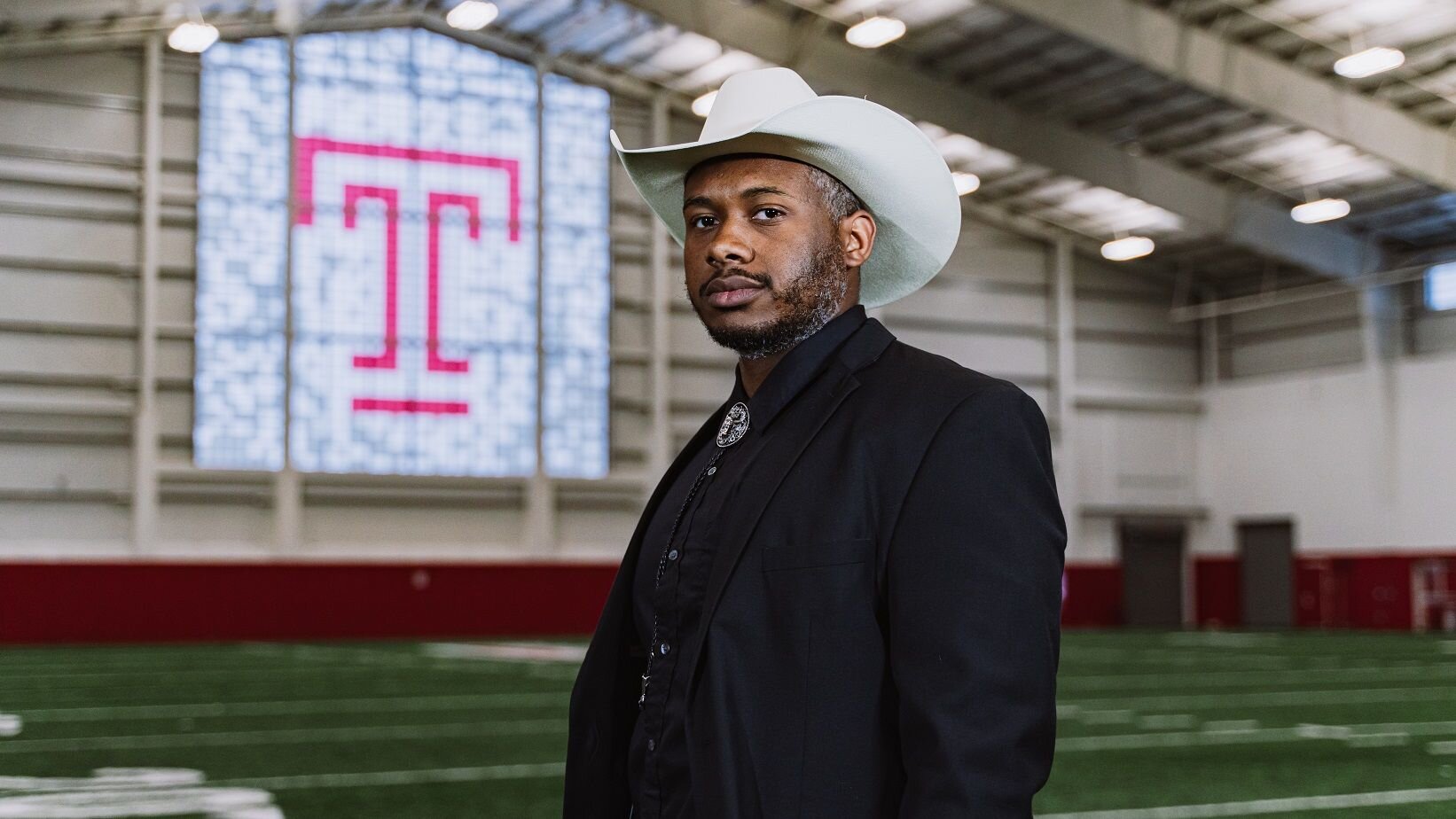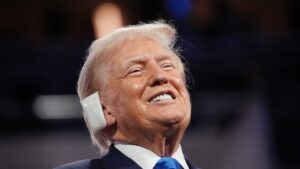

On Sept. 16, the University of Colorado’s football team was 3-0 and had secured the No. 19 ranking in the Associated Press Top 25 College Football Poll. Under Head Coach Deion Sanders, the Buffaloes were enjoying one of their best starts in recent memory, fully embracing the identity of a roster comprised of more than 75% Black athletes.
At the same time, some pundits were clamoring for the team to fail, others were arguing the team was entitled and some accused the coach of teaching his players to be arrogant.
Jonathan Howe, an assistant professor in the School of Sport, Tourism and Hospitality Management at Temple University, can attest that this is often the reality for Black male athletes at Division I Football Bowl Subdivision (FBS) universities.
Howe has focused much of his research on understanding the experiences of Black student-athletes in the predominantly white spaces of historically white institutions and Division I college athletics. His latest study, “Self-Presentation and Black Male College Athletes at Historically White Institutions,” was recently published in the Sociology of Sport Journal, and it is one of the first studies that examines how Black male college athletes self-present themselves at Division I historically white institutions.
“I wanted to be able to provide an outlet for them to tell their experiences of how they navigate historically and predominantly white institutions as there is not a lot of research out there on Black athletes,” Howe said. “When you are at a predominantly white institution, it’s often easy to figure out who the athletes are on campus as almost half of the Black population is usually a scholarship player or on some athletic team. This study serves to really amplify those athletes’ voices and illustrate what they experience.”
Howe’s study was made up of 16 participants from various Division I college sports across the U.S. and included a mix of students from different competition levels. Athletes from top FBS institutions and FCS schools were included, and a number of different sports were represented. Data was collected via interviews, an audio diary and tweets from participants’ Twitter profiles.
Some of the key findings from the study include the following.
- Black athletes often altered their self-presentation in predominantly white settings to avoid feeding into biased assumptions. For instance, participants would often dress up for class to avoid the “dumb jock” stereotype.
- Black athletes do not share their personal stories with coaches or trainers, as they do not want to look vulnerable to have that information potentially used against them.
- While Black athletes often alter their self-presentation, that does not mean they are being inauthentic. Rather, they are often just protecting themselves from potential emotional harm or criticism.
The criticism that the Colorado Buffaloes football program endured following its early-season success speaks to exactly why so many Black athletes often alter their self-presentation.
Another key finding within Howe’s study was that an athlete’s experience often depended on the school that they attended and the sport that they played. In the past, research had only focused on primarily on football and basketball, but this study took a broader approach.
“I wanted to be able to get an all encompassing study here because self-presentation does differ considerably depending on the sport the athlete plays,” Howe said. “One of the participants was a swimmer, and he was one of two Black swimmers on the team. So his experiences were vastly different from how he had to conduct himself around his team and even around competition, as the vast majority of everyone he was around was white. It is very different than a traditional football or basketball team where the majority of the athletes are Black.”
The study also found that in many instances, athletes are hesitant to even approach a white faculty member and make a request that might ultimately feed into some of the stereotypes surround college athletes. For instance, athletes are often anxious to tell their professor that they have to miss class due to a game. That anxiousness is further amplified if they have to ask for an extension on an assignment due to their sport.
Howe said one of the big takeaways from the study is that faculty members need to start treating college athletes the way that they treat all students.
“Just as we do with other students, we need to see potential in college-athletes, and we need to talk about ways in which we can maximize that potential,” Howe said. “That may be talking with them after class, meeting with them over coffee or holding office hours with them, in which we talk about ways that we can maximize their potential. We have those discussions with students all the time, but why don’t we have those discussions with Black male college athletes? That is the question that we really need to be asking ourselves here in academia.”
More information:
Jonathan E. Howe, Self-Presentation and Black Male College Athletes at Historically White Institutions, Sociology of Sport Journal (2023). DOI: 10.1123/ssj.2022-0108
Provided by
Temple University
Citation:
Study shows how Black college athletes alter self-presentation to avoid biases (2023, December 13)
retrieved 13 December 2023
from https://phys.org/news/2023-12-black-college-athletes-self-presentation-biases.html
This document is subject to copyright. Apart from any fair dealing for the purpose of private study or research, no
part may be reproduced without the written permission. The content is provided for information purposes only.





